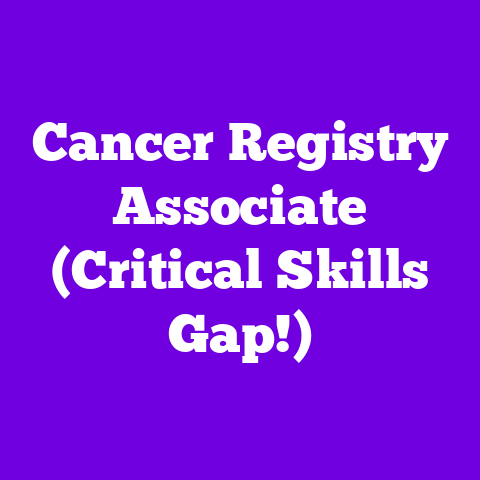Online Aero Eng Degree (Reddit’s Best Kept Secret!)
(Introduction)
Imagine this: It’s 2025. You’ve always dreamed of designing spacecraft, building the next generation of aircraft, or pushing the boundaries of space exploration. You’re brimming with ideas and passion.
But there’s a catch. Traditional aerospace engineering programs are incredibly competitive. The cost of tuition keeps skyrocketing, leaving many with mountains of student debt. Getting accepted feels like winning the lottery. Are you feeling the pressure?
What if I told you there was another way? A path less traveled, often overlooked, but gaining serious traction in online communities like Reddit? It’s the online aerospace engineering degree. Could this be the hidden key to unlocking your aerospace career?
Many aspiring engineers are simply unaware of this option. That’s why I want to shed some light on this potentially transformative route. Let’s dive in and explore why an online aerospace engineering degree might be the best-kept secret for aspiring aerospace engineers in 2025.
Section 1: Understanding the
Aerospace Engineering Landscape
Aerospace engineering is a field that deals with the design, development, testing, and production of aircraft, spacecraft, and related systems. It’s a diverse field, encompassing everything from commercial aviation to defense systems and space exploration. It’s a crucial sector, driving innovation and technological advancement.
Key Sectors:
- Commercial Aviation: Designing and manufacturing passenger and cargo aircraft.
- Defense: Developing military aircraft, missiles, and related technologies.
- Space Exploration: Creating spacecraft, satellites, and launch vehicles for exploring the universe.
The demand for skilled aerospace engineers remains strong. According to the U.S. Bureau of Labor Statistics, the median annual wage for aerospace engineers was \$122,270 in May 2022. (Source: https://www.bls.gov/ooh/architecture-and-engineering/aerospace-engineers.htm). The field is projected to grow, although slower than average, creating opportunities for new graduates.
Traditionally, aspiring aerospace engineers pursue a bachelor’s degree in aerospace engineering from a four-year university. This typically involves a rigorous curriculum of math, science, and engineering courses, often including hands-on lab work and design projects. The conventional classroom experience is characterized by lectures, problem sets, and group projects.
However, this traditional path comes with its own set of challenges. The cost of tuition and living expenses continues to rise, placing a significant financial burden on students.
Student loan debt is a major concern for many graduates. Competition for admission into top-tier aerospace engineering programs is fierce. A report by the National Center for Education Statistics showed that the average tuition and fees for a four-year public university were \$9,400 per year in 2020-2021. (Source: https://nces.ed.gov/fastfacts/display.asp?id=76). Private universities are considerably more expensive.
These challenges have led many to seek alternative educational pathways. That’s where online education comes in.
Section 2: The Rise of Online Education
Online education has undergone a tremendous transformation over the past few decades. What started as a niche option for non-traditional students has evolved into a mainstream alternative to traditional classroom learning. The advancements in technology and the increasing demand for flexible learning options have fueled its rapid growth.
One of the biggest advantages of online learning is flexibility. Students can access course materials and lectures at their own pace and on their own schedule. This is particularly beneficial for individuals who need to balance work, family, and other commitments with their studies.
Accessibility is another key advantage. Online programs remove geographical barriers, allowing students to enroll in programs offered by universities across the country or even around the world. This opens up a wider range of options and opportunities.
Online learning has become more effective and engaging thanks to advancements in technology. Video conferencing, interactive simulations, virtual labs, and online collaboration tools have created a more dynamic and immersive learning experience.
A study by the Online Learning Consortium found that online learning outcomes are comparable to, and in some cases, even better than those of traditional classroom learning. (Source: https://onlinelearningconsortium.org/).
The increasing acceptance of online education by employers has further boosted its popularity. Many companies now recognize the value of online degrees and certificates, viewing them as a testament to a student’s ability to learn independently, manage their time effectively, and adapt to new technologies.
The structure of an online aerospace engineering degree program typically mirrors that of a traditional program. Students complete coursework in areas such as:
- Aerodynamics: The study of how air flows around objects.
- Propulsion: The design and analysis of engines and propulsion systems.
- Structures: The analysis and design of aerospace structures.
- Flight Mechanics: The study of aircraft and spacecraft motion.
- Control Systems: The design and implementation of control systems for aerospace vehicles.
The curriculum is delivered through a variety of online formats, including video lectures, interactive simulations, online discussion forums, and virtual labs. The length of these programs is similar to traditional programs, typically taking four years to complete for a bachelor’s degree.
How does an online aerospace engineering degree compare to a traditional one? Let’s consider a few key aspects:
- Quality of Education: Many online programs are offered by reputable universities with experienced faculty members. The curriculum is often the same as that of the on-campus program.
- Faculty Credentials: Online programs are typically taught by the same professors who teach on-campus courses. These professors hold advanced degrees and have extensive experience in the aerospace industry.
- Hands-On Learning: This is often the biggest concern. However, many online programs are incorporating hands-on components through virtual labs, remote access to equipment, and partnerships with industry leaders that offer internships and project-based learning experiences.
Let’s hear from someone who’s been there. I spoke with Sarah, who completed her aerospace engineering degree online while working full-time. She told me, “At first, I was worried that an online degree wouldn’t be taken seriously by employers. But I made sure to gain practical experience through internships and personal projects. When I graduated, I had multiple job offers. The flexibility of the online program allowed me to work and study at the same time, which gave me a huge advantage.”
Section 4: Reddit’s Role in
Uncovering Hidden Gems
Reddit has become an invaluable resource for students seeking information about unconventional educational pathways. The platform’s anonymous nature and diverse community foster open and honest discussions, making it a great place to learn about the pros and cons of different programs.
Specific subreddits, such as r/aerospace and r/engineering, are goldmines of information for aspiring aerospace engineers. Users share their experiences, offer advice, and provide recommendations regarding online aerospace engineering programs.
I’ve seen countless threads on Reddit where students discuss their experiences with online aerospace engineering degrees. Many users praise the flexibility and affordability of these programs. They also highlight the sense of community and support that they find online.
For example, I found a comment from a user named “RocketMan2025” who wrote, “I was hesitant about doing my aero degree online, but it was the best decision I ever made. The professors were amazing, and I was able to connect with students from all over the world. The online community was incredibly supportive, and we helped each other through tough assignments.”
Another user, “SpaceGirl1998,” shared her experience: “I was able to land an internship at a major aerospace company thanks to the skills I learned in my online program. My employer was impressed with my ability to work independently and my knowledge of the latest aerospace technologies.”
These anecdotes highlight the power of Reddit as a platform for uncovering hidden gems and connecting students with valuable resources. The sense of community and support that Reddit provides can be particularly beneficial for students who are considering an unconventional educational pathway.
Section 5: Overcoming Skepticism and
Misconceptions
Let’s be real: online degrees still face skepticism. Some people worry about the quality of education or the perception of employers. It’s important to address these concerns head-on and dispel some of the common misconceptions.
One of the biggest concerns is the stigma that may surround online degrees. Some people believe that online programs are not as rigorous or as respected as traditional programs. However, this perception is changing as more and more reputable universities offer online degrees.
Accreditation is key. Make sure the online program you’re considering is accredited by a recognized accreditation agency, such as ABET (Accreditation Board for Engineering and Technology). Accreditation ensures that the program meets certain quality standards and that the degree is recognized by employers.
Another concern is the lack of hands-on experience. While online programs may not offer the same level of hands-on learning as traditional programs, they are increasingly incorporating virtual labs, remote access to equipment, and partnerships with industry leaders to provide students with practical experience.
I’ve spoken with employers who have hired graduates of online aerospace engineering programs. They often tell me that they are impressed with the students’ ability to learn independently, manage their time effectively, and adapt to new technologies. These are all valuable skills in today’s job market.
It’s important to remember that an online degree is not a shortcut. It requires hard work, dedication, and self-discipline. But for students who are willing to put in the effort, an online aerospace engineering degree can be a valuable and rewarding investment.
Section 6: Preparing for the Future:
What Employers Are Looking For
The aerospace industry is constantly evolving. Employers are looking for engineers who have not only a strong technical foundation but also the skills and knowledge to adapt to new challenges and technologies.
So, what exactly are employers looking for in aerospace engineers in 2025?
- Technical Skills: A solid understanding of aerospace engineering principles, including aerodynamics, propulsion, structures, and control systems.
- Problem-Solving Skills: The ability to analyze complex problems and develop innovative solutions.
- Communication Skills: The ability to communicate technical information clearly and effectively, both orally and in writing.
- Teamwork Skills: The ability to work effectively in a team environment.
- Adaptability: The ability to adapt to new technologies and challenges.
Online aerospace engineering degrees can equip students with the necessary skills and knowledge to meet these demands. Many programs incorporate project-based learning, which allows students to apply their knowledge to real-world problems. They also emphasize the development of communication and teamwork skills through online collaboration tools and group projects.
I spoke with an HR manager at a major aerospace company, and she said, “We value candidates with diverse educational backgrounds. We’ve hired graduates of online aerospace engineering programs who have been very successful. What matters most is their skills, their knowledge, and their ability to learn and adapt.”
Continuous learning is also crucial. The aerospace industry is constantly evolving, so engineers need to stay up-to-date on the latest technologies and trends. Online courses, workshops, and conferences can be a great way to continue learning and developing your skills throughout your career.
(Conclusion)
Let’s circle back to that dilemma we started with. You’re passionate about aerospace engineering, but the traditional path feels overwhelming. The online aerospace engineering degree offers a viable and potentially transformative alternative.
It might not be the conventional route, but it offers unique benefits: flexibility, accessibility, and the opportunity to balance work and studies. It allows you to learn from experienced faculty, connect with a global community of students, and gain the skills and knowledge you need to succeed in the aerospace industry.
Don’t let skepticism or misconceptions hold you back. Do your research, explore your options, and consider the online aerospace engineering degree as a potential pathway to a fulfilling and successful career.
The aerospace industry needs talented and passionate engineers like you. Whether you choose the traditional path or the online route, the most important thing is to pursue your dreams and never stop learning. Your future in aerospace engineering awaits!






